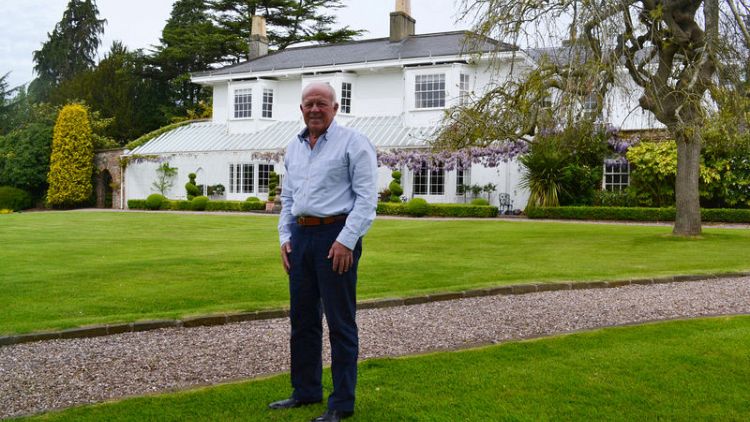By Simon Jessop
LONDON (Reuters) - British fund supermarket Hargreaves Lansdown reported a 6 percent fall in first-half assets under administration after heavy market losses, lagging analyst expectations and sending its shares lower.
Total assets at the end of December stood at 85.9 billion pounds ($112.91 billion), it said in a statement, down from 91.6 billion pounds at the end of June and lagging consensus analyst expectations for 88.2 billion pounds.
While the company, which provides investment, stockbroking and savings products to retail clients, saw net business of 2.5 billion pounds, it was hit by negative market moves totalling 8.2 billion pounds, it said.
Concerns around economic growth wiped billions of pounds off global stock markets in the last few months of 2018 and prompted many investors to withdraw from the market.
Adding to the weakest investor sentiment Hargreaves said it had seen in 20 years was Britain's impending exit from the European Union, due to coincide with the end of the tax year at end-March, typically the company's busiest time of the year.
"The effects of Brexit and volatile markets weighed on client confidence, trading activity was lower and inflows less strong than a year ago," said Jefferies analyst Phil Dobbin, who has an 'underperform' rating on the stock.
At 0857 GMT, shares in Hargreaves were down 5.8 percent, making the stock the biggest faller on Britain's blue-chip FTSE 100.
As a result of the uncertain outlook, Hargreaves said it was moderating its rate of investment in the business, although it remained confident about client demand for its services.
Despite the weaker market backdrop, Hargreaves managed to attract 45,000 new clients during the quarter, helping pretax profit rise 4 percent to 153.4 million pounds and underpinning a 2 percent rise in the interim dividend to 10.3 pence per share.
"We have a significant long-term market opportunity and our recent investment in service and developing our proposition are bringing real benefits to the business and our clients, both in difficult times such as the present and as and when conditions improve," Chief Executive Chris Hill said.
(Editing by Rachel Armstrong and Louise Heavens)



